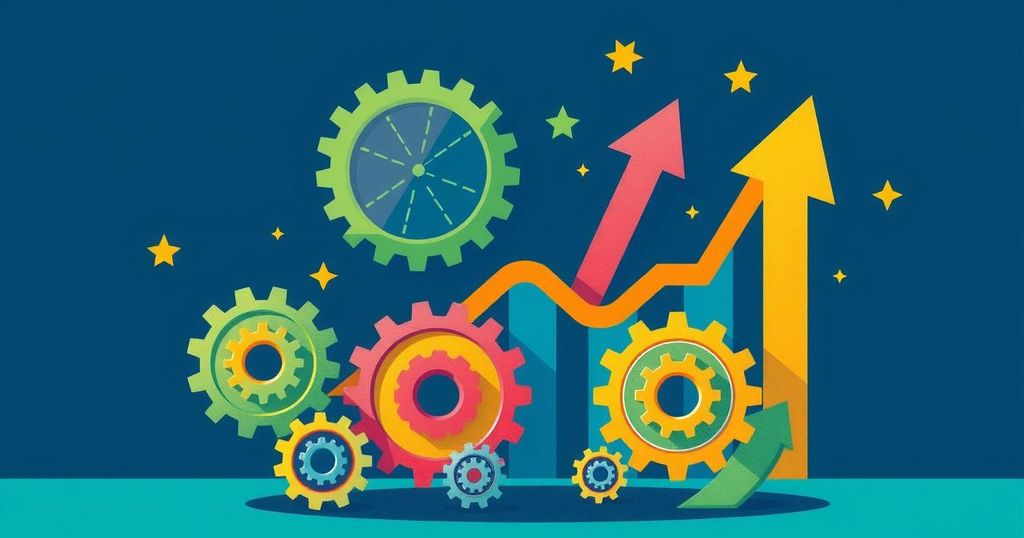The World Bank’s Spring 2025 Lebanon Economic Monitor predicts a 4.7% GDP growth in 2025, aided by reform progress and recovery in tourism. However, ongoing political instability and a financial crisis challenge this positive outlook. The report also offers a one-year action plan aiming to support government reforms and restore fiscal stability.
Lebanon’s economic growth appears to be on the upswing, as the World Bank projects a 4.7% increase in real GDP for 2025. This growth rate is underpinned by progress in reforms, a recovery in tourism, and an uptick in consumption—even though capital inflows remain limited. However, the overall outlook is still jeopardized by the country’s political instability and the ongoing unresolved financial crisis, which hampers significant private investments.
According to the Spring 2025 Lebanon Economic Monitor (LEM) titled “Turning the Tide?”, the previous contraction estimate for 2024 has been revised down to 7.1% from an initial forecast of 5.7%. This revised figure reflects nearly a 40% cumulative decline since 2019. Inflation is expected to ease to 15.2% in 2025, contingent on a stable exchange rate and dampened global inflation rates. Although there are slight prospects for increased public spending on essential services due to improved revenue collection and a balanced budget, substantial fiscal pressures linger that demand broader structural reforms for lasting sustainability.
Jean-Christophe Carret, World Bank’s Middle East Division Director, commented on the recent political climate by stating, “Recent political developments brought a renewed momentum and offer an opportunity to address the fundamentals of Lebanon’s overlapping financial, economic, and institutional crises.” He emphasized that with targeted and impactful measures, Lebanon could address critical issues and aim for a sustainable recovery.
The report also sheds light on how global trade uncertainties affect Lebanon. While direct impacts seem minimal—given that exports to major markets represent only about 4% of total goods exports—the indirect consequences are complex and depend on global trade dynamics that influence investment and economic performance.
In terms of inflation trends and exchange rates, the LEM notes that prior to the crisis, Lebanon’s inflation mirrored global trends. However, since 2019, depreciation of the exchange rate has primarily driven inflation. Despite increased dollarization and a stable exchange rate, inflation may return to patterns observed before the crisis but is likely to consistently exceed global averages due to persistent domestic factors. Furthermore, significant depreciation was noted in the real effective exchange rate during the crisis, but this hasn’t translated to improved export performance thanks to structural issues and extensive dollarization.
A special focus of the LEM outlines a one-year action plan aimed at supporting the government’s reform efforts. This plan draws lessons from the World Bank’s two-decade engagement with Lebanon, and puts forward actionable steps that align with government objectives, acknowledging the short duration of the current administration. The proposed policy actions put emphasis on restoring macro-financial stability, rebuilding trust among citizens, and creating the groundwork for a new economic development model.
In summary, Lebanon’s economic outlook for 2025 indicates potential growth amid serious challenges, with a projected 4.7% increase in GDP. The World Bank’s report emphasizes the importance of political stability and meaningful reforms to combat inflation and public debt. However, the ongoing financial crisis and dependency on international trade dynamics remain points of concern, highlighting the need for urgent, actionable reform strategies to ensure recovery and foster stability in the long term.
Original Source: reliefweb.int






